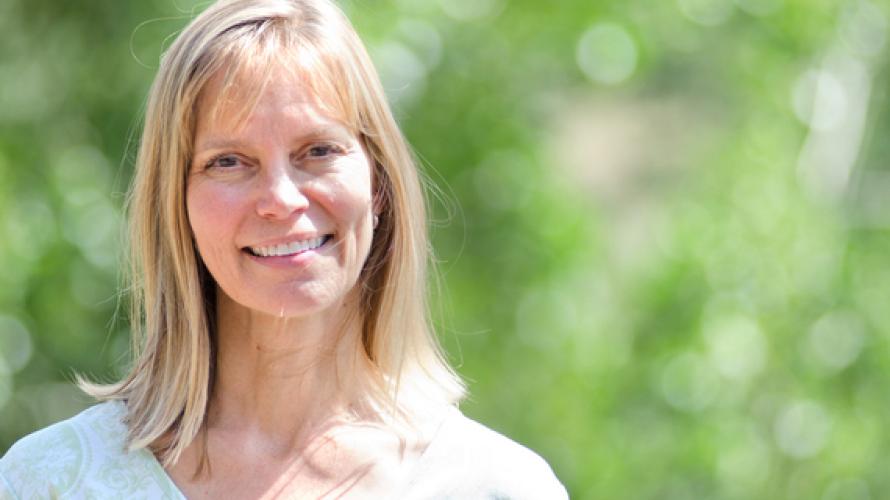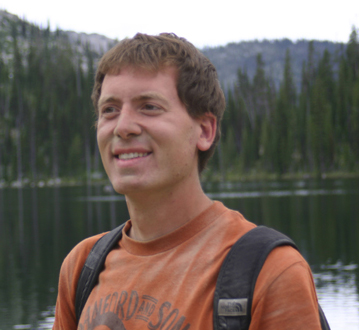
 Brian D'Ambrosio is a writer/editor living in Missoula, Montana. D'Ambrosio is the author of more than 300 articles and five books related to Montana history, people, and travel.
Brian D'Ambrosio is a writer/editor living in Missoula, Montana. D'Ambrosio is the author of more than 300 articles and five books related to Montana history, people, and travel.
Poetry is no mystical calling. It doesn't need to be analytical, critical or scientific.
It only needs to be expressive.
Montana's poet laureate Tami Haaland is on a mission to mend the misunderstanding of poetry.
"I tell people that it's OK to hate poetry," says Tami Haaland. "A lot of people think they can't understand it -- and many times, they can't. But there are many kinds of fiction that are really difficult to read as well. So, it's really a matter of giving poetry a longer chance, sticking with it, and evaluating what's going on and whose talking. From a writing standpoint, it is about expression -- and we can all do it."
Poetry is no intruder. It should be natural. It can be an exploration or examination, freeing us to laugh at our weakness, pain and rage. Or it could be a small truth that feels like a revelation. It may reveal us to be fools on a forced march to oblivion, and it can hurt like hell. Or it can leave us laughing on exit. We choose what it is to us.
To Haaland, poetry is sanity in a busy schedule, a juxtaposition of emotional responses she tries to find the time to let mature.
"I have a heavy teaching load and community obligations, but I write frequently. I write all of the time. Now I carry a notebook, where in the past I would lose poems, stacking them by the computer, writing on the back of my receipts. I have no problems with inspiration, because plenty of things are happening in the exterior world."
Bombarded with modernity's scandalous mayors, opinionated Internet loudmouths, and people obsessed with hashtags and Twitter feeds, modern poetry exists as a quiet self-conversation in an era of carping outside noise.
Haaland finds that nothing stirs the senses more than walking along the Rimrocks, or the "Rims," - a geological sandstone outcropping in her Billings neighborhood. That time gives her the opportunity to analyze her thoughts and mentally select the right wording, the right explanation.
"There is something about rhythmic activity that's helpful in thinking things through. When I walk, I may carry a poem around in my head, thinking about what lines shouldn't be there. I'll make those decisions about dropping a line when I'm out walking."
Gov. Steve Bullock appointed Tami Haaland this past summer as Montana's poet laureate. Haaland will serve through Aug. 1, 2015. She was nominated for the honor by Montana's first poet laureate, Sandra Alcosser.
Haaland became a professor in the English department at Montana State University Billings in 1994. In addition to teaching a full load at MSUB, Haaland has taught creative writing and literature courses at the Montana Women's Prison since 2008, and in 2012, she helped launch a writing project at McKinley Elementary School through the Arts Without Boundaries program.
The literature and creative writing therapy courses in the prison take place over four, eight, or twelve weeks. I've helped on literary journals in the prison, guiding students through the editing process. Working inside the prison was interesting, it allows inmates to look at their past experiences and examine how they'd do things differently. It's exciting when they call themselves poets and they understand it.
Years ago, while teaching in Iowa, Haaland work with students who were also prisoners. That experience supplied her with the realization that not every life experience can be neatly polarized.
I was quickly aware of the fact that, on the outside, prisoners were supposed to all be bad, and that the good people were all supposed to be on the outside. But that wasn't the case. I learned that it's not fair to make harsh judgments. Many people on the inside were abused, neglected, and so forth. I realized how important it is for people to express themselves, especially in an atmosphere that obviously makes you think in terms of right and wrong. Writing gives people in prison a chance to express themselves and make choices.
In recent years, Haaland published two books of poetry, Breath in Every Room, which won the Nicholas Roerich Prize from Story Line Press, and When We Wake in the Night, a finalist for the May Swenson Award.
Haaland plans to travel across Montana, visiting remote communities that even those with the strongest geographic familiarity of Big Sky Country never knew existed.
"There are so many places I've never been. There is always a new place I've never known about. I'm excited to get traveling."
Haaland was born on the Hi-Linem where her family farmed south of Inverness, approximately 20 miles out of town, close to the Marias River. Some poems represent her childhood -- hiking, working on the family farm, exploring a world full of mystery. "Goldeye, Vole" captures the feelings of her youth, the precious innocence of naming the flowers, snakes, and lichens along the ground. Haaland's poem "A Calandar of Barley" conveys the sensory experience of wandering the harvest field.
"For a long time I tried to write about these places and it felt corny. But eventually certain poems endured and allowed me to speak authentically about these places."
Poet laureate is a mark of distinction that doesn't come with a monetary award. As part of the position, Haaland advocates poetry as something accessible, a self-choice not to be feared. Part of her duties will be to create a Montana speaker's bureau program through Humanities Montana.
"The object is to share poetry in whatever way seems wisest," says Haaland. "I grew up in such a rural area, but I remember the arts councils and events. I remember the Calgary opera performing at the high school where I grew up. Small communities can bring in writers and poets, and that's really important. To whatever extent I can make things like that happen, I will."
